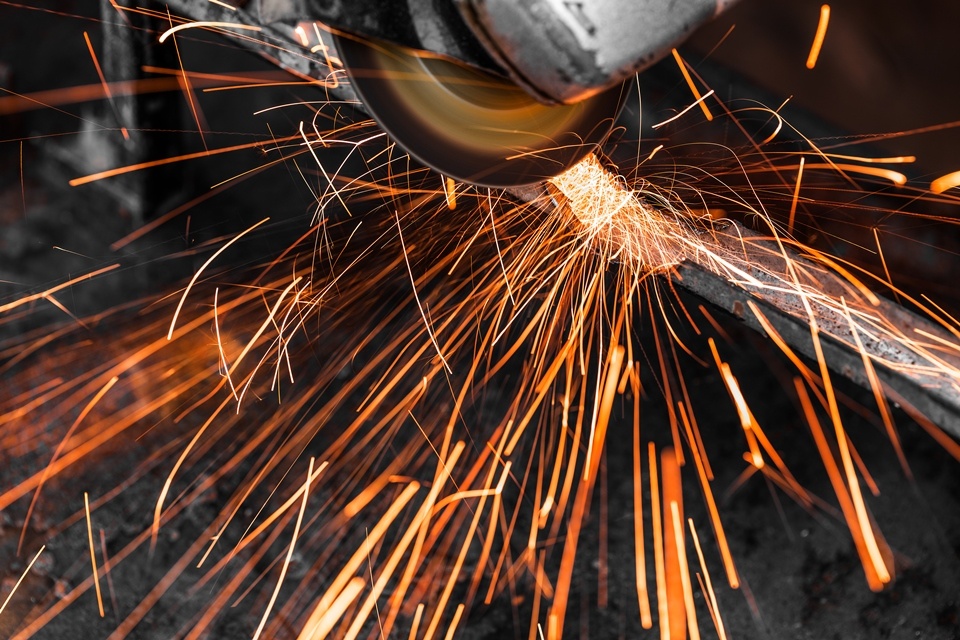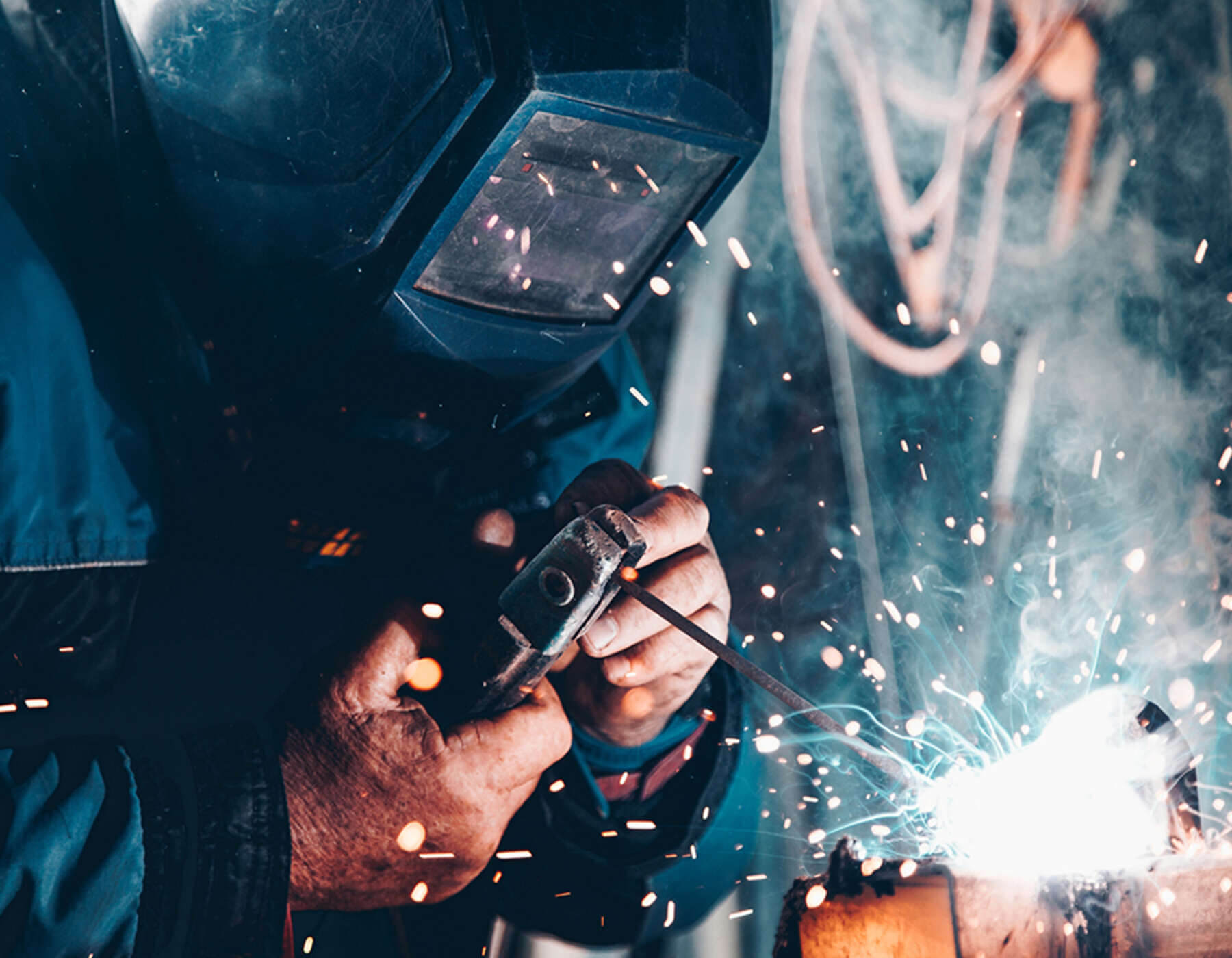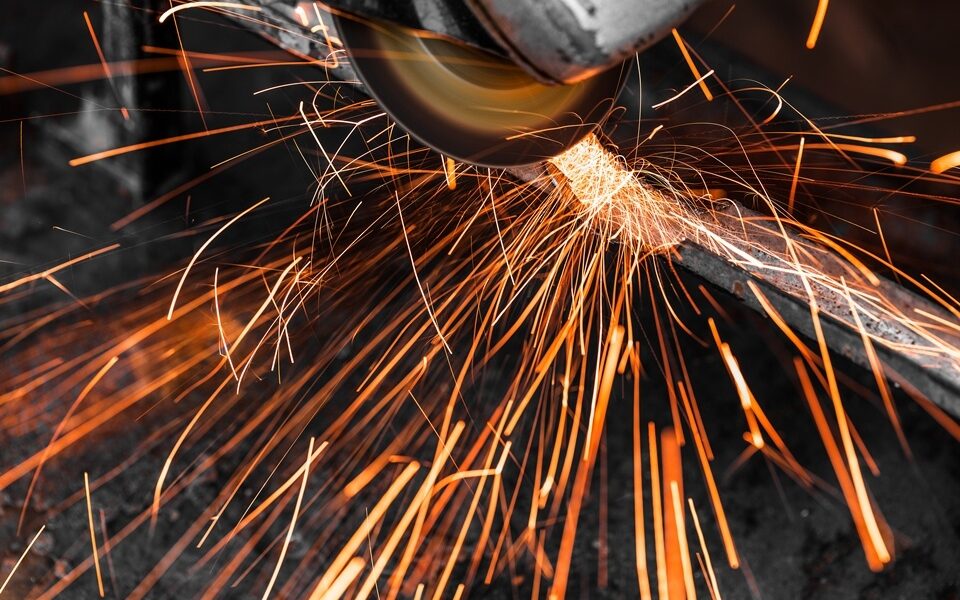
Metal fabrication involves a range of processes, from welding to drilling, cutting to forming, all used in a sequential order to achieve the final outcome – the finished product.
Due to the various processes involved and the fact that every project and product design is different, the type of metal used must be suitable for the application and environment.
Fabricators must take into account strength, hardness, the metal’s ability to resist corrosion, conductivity elements, and more.
Metals that provide these properties make them suitable for use in various products, structures, sculptures, appliances, steel metal fabrication frameworks, etc.
Below, the Morfab team has listed some of the most popular fabrication metals, their benefits, and the industry sectors where you will find them.
Steel Metal Fabrication
Metal fabrication is vitally important for almost every sector involving metal-related products, goods, machinery, etc.
Supporting a range of operational requirements, metal fabrication uses various types of metals to meet very specific and wide-ranging specifications, with the type of metal chosen based on a number of factors, for example, strength, weight, formability, corrosion resistance, and let’s not forget, cost.
However, the fabrication of various metals is very precise. In fact, it’s vital that steel fabricators work to exact specifications and requirements during all parts of the fabrication process. Using the correct and most appropriate elements of the fabrication process to achieve the best outcome.
To learn more about fabrication, make sure to read our latest post, which looks into further detail into processes and procedures.
Most common metal fabrication materials
Steel – is the most common material used in metal fabrication due to the multitude of benefits this material can offer. For example, an alloy of iron and carbon, stainless steel provides low corrosion properties and comes in various grade types:
- Austenitic – is high corrosion and temperature resistant, and incredibly durable.
- Ferritic – has a grain structure and is made up of carbon and chromium, often found in the automotive and industrial manufacturing industries.
- Martensitic – offers excellent tensile strength and wear resistance.
- Duplex – a type of stainless steel often found in oil and gas industries as well as in paper production.
- Precipitation hardening steel – a corrosion-resistant steel grade, this type of stainless steel is great for valves, gears, etc.
Other types of metal fabrication metals include:
Stainless steel – made up of carbon steel, aluminium, chromium, and other elements, stainless steel is highly corrosion resistant. Providing a polished silver coating, stainless steel is a great choice for metal ceramics, surgical instruments, cookware, cabinet fittings, and more.
Mild steel – a commonly fabricated metal used in automotive, construction, and plumbing industries, mild steel is highly machinable, offering high impact and tensile strength, good malleability, and weldability.
Carbon steel – is easily fabricated to a variety of hardness levels, i.e. as the volume of carbon rises, so does the strength of the overall steel. However, the malleability and melting point of the metal does decrease, and you should bear this in mind.
Aluminium – lightweight, durable, and versatile, aluminium is ideal for low-temperature applications, offering good thermal and electrical conductivity. As aluminium is corrosion and temperature resistant, it is also compatible with other metals, making it suitable across a range of fabrication processes. With a great strength-to-weight ratio, aluminium offers incredible durability, especially when compared to its counterpart, stainless steel. Great for the automotive and aerospace industries.
Copper – is a great conductor of thermal and electrical conductivity; copper is a great choice for the electrical engineering, marine, and construction industries. Copper is also durable, tough, malleable, and resistant to corrosion and bacteria.
Bronze – a copper alloy only stronger, bronze is heavier than steel and is used for coins, weapons, cookware, armour, etc. Bronze is also corrosion-resistant and offers high heat and thermal conductivity. However, an important point to note: Bronze is more expensive than steel, and this must be worked into costings for final products.
Brass – made up of copper and zinc, brass is required for fixtures and fittings such as nuts, bolts, pipe fittings, doorknobs, etc. Brass is also an excellent fabrication steel for musical instruments.
Brass is resistant to bacteria, extremely strong, and malleable. Some of the fabrication processes suitable when working with brass include casting, cutting, and punching.
Magnesium – a light structural metal that is low density, hence providing a high level of rigidness over strength. Used in the aircraft and automotive industry for automobile parts, magnesium is often added to the fabrication process through casting, helping to improve the final outcome of the end product.
Steel Metal Fabrication
At Morfabrication, we work to your specifications. Using the right processes and fabrication methods, we work to the highest standards, producing the highest quality products.
We work with the most appropriate metals to suit your needs. So whether you need corrosion resistance, enhanced strength, or polished silver – we’ve got you covered.
Metal fabrication requires expertise. A professional and experienced team with the right tools and machinery to produce the highest quality, on-spec end product.
It requires, Morfabrication.
Contact one of our professional steel fabricators today to see how we can help you with your next project.
Read related article: choosing a metal fabrication company

